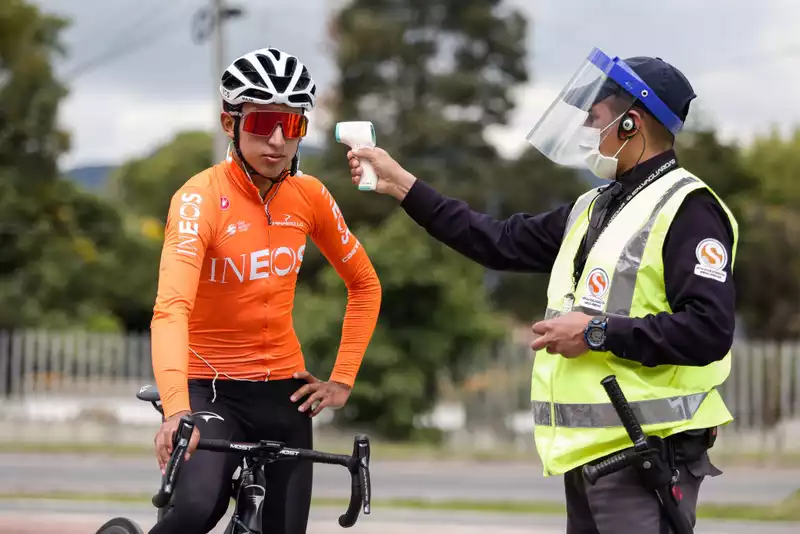The UCI has added more details to its coronavirus medical protocols ahead of the resumption of the 2020 season, confirming that the UCI will make the final decision on whether to cancel a race if a COVID-19 infection occurs on a team.
Last month, the UCI released the first version of the protocol, setting forth measures to reduce the risk of infection, including the creation of a protective peloton and team "bubble."
Now, in addition to fleshing out the process for testing riders and team staff before and during races, the protocol also addresses one of the big question marks: what to do if a positive test occurs.
Previously, the UCI had stated that action would be taken according to the measures in place in the country in question, but now it has added that a steering group reporting to the UCI will be established immediately and that the UCI will make the final policy decision.
The details of possible response scenarios remain unclear, as different decisions may be made depending on national regulations and specific cases.
"If a case of COVID-19 is identified within a team (athlete or team member), a group composed of members representing the team, runners, organizers, UCI, team doctor, and the COVID doctor of the event will be established," the latest version of the protocol states.
"This group will be composed of members representing the team, the organizers, the UCI, the team doctor and the COVID doctor of the competition.
"This group will collect all information concerning the competition and transmit it to the UCI, which, in consultation with the organizers and national authorities, will take a decision appropriate to the circumstances."
The protocol also states.
Each Congress must appoint a COVID coordinator, who is responsible not only for managing the patients at the local health service, but also for identifying with whom the patients have had contact.
It is unclear at this time whether athletes who shared outdoor space in a mobile peloton with COVID-19 positive individuals are considered the former or the latter. On the other hand, teammates and staff who spent time together indoors would likely be considered "close contacts" and thus could be isolated from other teams and races.
As is the case in soccer championships and other sports throughout Europe, if a COVID-19 positive person appears on a team, the race may continue if it is deemed safe.
The medical regulations and protocols of each country hosting the race must be followed, but if a case of COVID-19 appears in the team bubble, the UCI will make a final decision "appropriate to the circumstances" as to whether to continue or ultimately cancel the race.
To enter the so-called "team bubble" and participate in the race, athletes must pass several COVID tests: a nose or throat swab that detects the presence of the SARS-CoV-2 virus; the first is six days before the race; the second is three days before the race; and the third is three days before the race.
In addition, if a person is competing in a one-day race, he or she must undergo another PCR test 10 days after the previous test; if a person is competing in two one-day races more than 14 days apart, he or she must undergo two separate PCR tests, one 6 days before the second race and one 3 days before the third race.
For stage races, riders must always be tested twice according to the 6-day/3-day pre-race schedule, even if they were allowed to race in the previous two weeks.
In addition to PCR testing, all riders and staff must complete a medical questionnaire daily for 5 days prior to the race; the UCI provides a sample of 8 different symptoms scored, but team doctors are free to use their own tools.
During the race, riders must report the above symptoms on the morning of the one-day race and on the morning and evening of each day of the stage race.
Social distancing measures will be taken and special accommodation rules will be established for team hotels. The start, finish, and podium ceremonies will also be changed, and the UCI will be responsible for special anti-doping protocols.
In-race coronavirus testing will only be conducted during the three Grand Tours, especially on rest days; PCR testing is "recommended" but not mandatory, and the UCI states that it is the responsibility of each race organizer.
The protocol is based on a study by the World Health Organization (WHO), and was developed by the UCI Medical Director, Professor Xavier Bigard, along with riders, teams, cycling doctors, organizers, the women's representative of the CPA (Professional Cyclists Association), and the President of the UCI Athletes' Commission Katerina Nash, led the process.
.

Comments